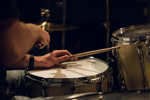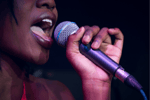Every singer gearing up for a vocal performance, whether a concert, musical theatre production, recording session, or an open mic night, knows the immense dedication and practice it demands.
Perfecting every note and pitch and infusing your unique style into the material is a challenging yet rewarding journey.
The last thing you want is for a poorly chosen drink to undermine all the hard work and preparation you've invested in your singing talents.
Your singing voice is akin to a finely tuned instrument, responsive and delicate.
Treating it with care is vital to ensure a smooth and successful performance.
So, what should you drink to support your vocal folds, and what beverages are best avoided before stepping onto the stage?
Making the right choice can significantly impact your vocal performance, helping you maintain a clear, resonant singing voice throughout your performance.
Table of Contents:
Your Vocal Health
Understanding the relationship between your vocal health and the beverages you consume is crucial before a singing performance.
Vocal coaches and music instructors universally agree that your choice of drink can significantly affect your vocal cords, influencing your vocal range and overall singing talents.
While their effects may be temporary, certain drinks can irritate your vocal cords, making it challenging to deliver a flawless performance.
For optimal vocal performance, your vocal folds must be relaxed and soothed, not inflamed or constricted.
A crucial note: Persisting through a performance with irritated vocal cords, whether from a sore throat, inadequate warm-ups, or unsuitable drink choices, can lead to long-term damage to your vocal health.
Ensuring the well-being of your voice before singing is imperative to maintain your voice over time.
Now, let's explore the drinks you should avoid to preserve your vocal health before a performance.
What You Should Not Drink
Let's get the negatives out of the way first.
The following are drinks you should strongly consider skipping before a vocal performance.
Milk
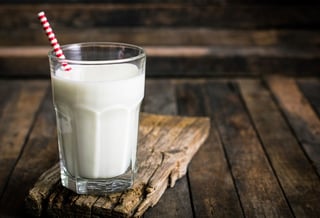
One of the first recommendations you'll hear from any professional singing teacher is to avoid milk before a performance.
As a member of the dairy family, milk can be problematic for singers despite its appealing taste (chocolate milk included).
Its tendency is to coat the throat and stimulate extra mucus production.
This can lead to a constant urge to clear your throat and a noticeable reduction in vocal flexibility during your singing performance.
For some singers, dairy products like milk can trigger acid reflux, an undesirable occurrence, especially when you're about to take the stage.
The excess phlegm caused by milk can also affect the quality of your singing voice, potentially leading to a raspy singing voice or giving the impression of voice cracking.
To ensure your vocal folds remain clear and your performance is unimpeded, it's best to avoid milk and dairy products, including excessive cheese and milkshakes, before singing.
Soda
While the allure of a fizzy soft drink might be tempting, especially for that quick energy boost, it's best to steer clear of soda before a vocal performance.
The carbonation in these drinks can cause unwanted side effects that are less than ideal for singers.
The bubbly nature of carbonated drinks like soda introduces excess air into your stomach, increasing the likelihood of burping during your performance.
This is definitely not an interruption you'd want while showcasing your singing talents.
Additionally, soda's high processed sugar content can exacerbate mucus production in your throat, leading to a raspy singing voice or excess phlegm, much like dairy products.
The double trouble of carbonation and processed sugar makes soda a less-than-ideal choice for vocalists.
Avoiding soda before singing could be the first step towards eliminating it from your diet entirely.
This change can have positive, long-term health benefits for your throat muscles and overall well-being.
Alcohol
Feeling a bit nervous before a performance is understandable, and the temptation to use alcohol to 'take the edge off' can be strong.
However, it's crucial to recognize that there are more beneficial choices for your vocal performance.
Alcohol, in any form, can have detrimental effects on your singing voice:
- Beer: Known to cause gas and bloating, beer can tense your diaphragm, which is counterproductive to the relaxed state needed for optimal singing. The carbonation in beer can also lead to excess mucus production, affecting your vocal clarity.
- Wine: While it may seem less harmful, certain wines can significantly dry out your throat. A dry throat leads to discomfort and can cause strain and a raspy singing voice, hindering your vocal range and performance.
- Mixed Drinks: The high sugar content in many mixed drinks is a significant concern. Processed sugars can increase mucus production in the throat, reducing vocal flexibility and leading to a less smooth vocal performance.
The best approach is to save alcoholic beverages for post-performance celebrations.
Caffeinated Drinks
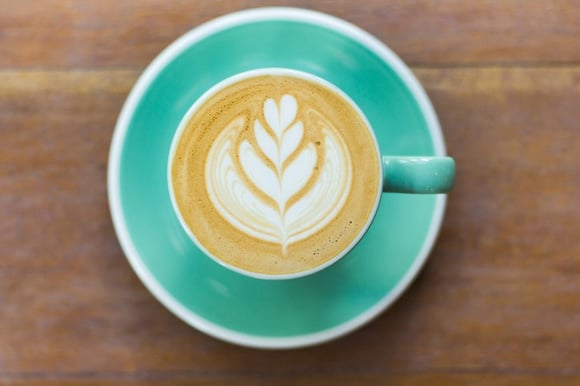
Caffeine is popular for its energy-boosting properties, but it's not the best choice before a singing performance.
As a diuretic, caffeine increases the frequency of urination, leading to dehydration – a singer's adversary.
Staying hydrated is crucial for maintaining a smooth, clear singing voice and ensuring your vocal folds function optimally.
Dehydration isn't the only concern with caffeine; it can also constrict your throat muscles.
This constriction puts undue stress on your vocal cords, potentially impacting your vocal performance or causing a raspy singing voice that could last for days.
That means you should avoid coffee and caffeinated tea before performing.
Coffee, in particular, can be a strong irritant to your throat, exacerbating dryness and discomfort.
While tea is generally a fantastic choice for singers, be cautious with green tea on performance days due to its drying effects.
Save it for your regular routine instead.
Remember, a nutritious, well-balanced meal a couple of hours before your performance can provide the necessary energy without the need for a caffeine boost.
Ice-cold Water
Drinking water is essential for health, so a nice glass of ice-cold water before your performance won't hurt, right?
It's counterintuitive, but ice-cold water isn't the best option for vocalists before a singing performance.
The reason lies in how cold temperatures affect your throat muscles.
Drinking ice-cold water can constrict these muscles, making them less flexible.
For singers, flexibility in the throat is crucial for a smooth vocal performance, allowing you to effortlessly reach your full vocal range without strain.
Instead of reaching for that pint of ice-cold water, consider opting for room-temperature water or a warm drink.
These options help maintain a relaxed throat, ensuring your vocal folds are primed for those high notes and complex melodies.
What You Should Drink
Alright, we've checked off all the drinks that you should not ingest.
So what is left?
Water
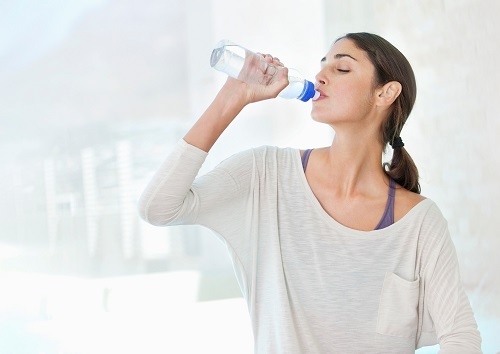
While it may seem boring, room-temperature water is undeniably the best choice for singers looking to care for their vocal folds.
A simple glass of water can do wonders for your singing voice, providing the hydration necessary for a smooth vocal performance.
Remember, ice-cold water can constrict your throat muscles, which isn't ideal for singing.
Room-temperature water is generally the most recommended for maintaining optimal vocal fold function.
It helps to lubricate and hydrate your throat without causing any unnecessary tension.
A useful tip for singers is to add a pinch of salt to your water and gargle for about 30 seconds.
This little trick can enhance the moisturizing effect to help prevent a dry throat or sore throat.
Hydration should be a priority well before your singing talents are tested.
Experts often advise increasing your water intake the day before your performance or recording session.
This ensures that your body, especially your vocal apparatus, is well-hydrated, reducing the risk of a raspy singing voice or excess mucus production.
Decaffeinated tea
Caffeine-free tea can be incredibly beneficial for your singing voice, especially before a performance.
Known for its soothing effects on throat muscles, it can enhance their flexibility and promote relaxation.
When your throat muscles are relaxed thanks to the warmth of hot drinks like herbal teas, you'll likely experience improved control over your voice.
This can help you reach higher pitches with ease.
Teas like black tea, ginger tea, and lemon tea offer the perfect balance of hydration without causing bloating, which is essential for vocal performance.
For singers, 'Throat Coat' tea is a top recommendation.
This specific blend is crafted to support vocal health, often containing antibacterial and anti-inflammatory ingredients that are gentle on the vocal folds and help reduce excess mucus production.
Throat Coat is available in most convenience stores and popular among professional singers for its noticeable benefits on the singing voice.
Honey
While honey isn't a "drink," its benefits for singers are too significant to overlook.
Adding just a small amount of honey to warm water or tea can work wonders in soothing your vocal folds and preparing your voice for singing.
Honey has natural antibacterial and anti-inflammatory properties, making it perfect for combating vocal strain and preventing sore throats – common concerns for vocal performers.
However, due to its high sugar content, moderation is key.
A teaspoon or two is sufficient to reap the benefits without overdoing it.
Adding honey into your pre-performance routine can help ensure your vocal cords are in optimal condition, allowing your singing talents to shine without the hindrance of a raspy singing voice or throat inflammations.
Exceed Your Own Expectations
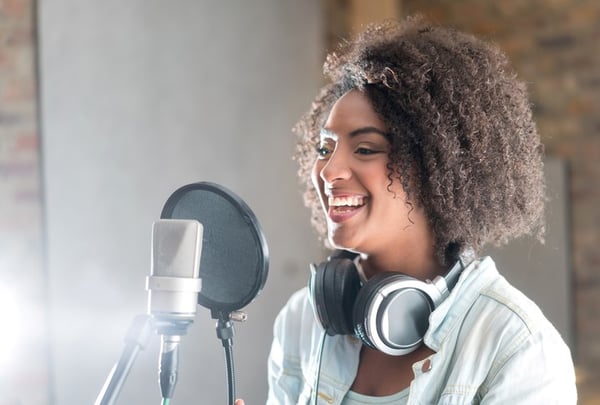
The choices you make can significantly impact your singing voice.
Remembering the importance of a proper warm-up, adequate hydration, and even steaming before stepping onto the stage is essential.
These practices are as crucial as selecting drinks that best support your vocal folds and throat health.
By choosing drinks like warm water or ginger tea, avoiding carbonated beverages and citrus fruits that can increase mucus production, and maintaining a balanced water intake, you set the stage for a vocal performance that meets and exceeds your expectations.
To take your vocals a step further and capitalize on your potential, consider the Atlanta Institute of Music and Media.
AIMM offers two programs that can help advance your singing career. This includes:
- Performance Certificate in Vocals
- Music and Technology Associate Degree: Vocal Concentration
If you are purely interested in your singing voice, performance, and slaying every singing session, then the Performance Certificate is for you. Plus, you can earn your certificate in just a year full-time!
However, if you want to maximize your singing talents and also learn how to record, mix, and master music like your favorite professionals, the Music and Technology Associate Degree is the best option for you.
Turn your singing passion into a successful music career at AIMM.
For more information, don't hesitate to click the link below.






